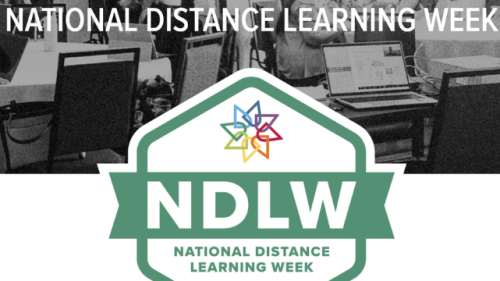Public service is a broad field that encompasses both government agencies and nonprofit organizations, each playing a crucial role in addressing societal needs and improving communities. Although both sectors aim to serve the public good, they operate under distinct models that shape their impact and leadership challenges.
Whether you’re drawn to government work, nonprofit management, or both, a Master of Public Administration (MPA) provides the skills and knowledge necessary to lead effectively in either environment. Kent State University’s 100% online MPA program offers a comprehensive curriculum that equips students with the strategic, financial, and leadership competencies to thrive in both public and nonprofit organizations.
Let’s explore the key differences and similarities between the public and nonprofit sectors and how an MPA prepares you for leadership in both.
Understanding the Public vs. Nonprofit Sector
Both public and nonprofit organizations serve the public good, but their operational frameworks, funding sources, and leadership dynamics vary. Here’s a closer look at each sector’s distinct characteristics:
Public Sector: Government Agencies
Government agencies operate at the local, state, and federal levels, focusing on policy implementation, regulatory oversight, and the provision of public services such as healthcare, education, and infrastructure.
Key Features:
- Funding: Primarily sourced from tax revenue and governmental appropriations.
- Accountability: Highly regulated, with transparency requirements to taxpayers and stakeholders.
- Decision-Making: Bureaucratic structure with strict policies and procedures.
- Key Roles: Policy analysts, city managers, budget directors, and public affairs specialists.
Nonprofit Sector: Mission-Driven Organizations
Nonprofits operate independently of government control but often collaborate with public entities to address social, environmental, and economic issues. They focus on delivering services that meet community needs and rely on a mix of funding sources.
Key Features:
- Funding: Derived from donations, grants, memberships, and service fees.
- Accountability: Governed by boards of directors, donors, and the community.
- Decision-Making: More flexible and mission-driven, with an emphasis on stakeholder engagement.
- Key Roles: Executive directors, program managers, grant writers, and development officers.
How Kent State’s Online MPA Prepares You for Both Sectors
Kent State’s online MPA program is designed to provide a versatile skill set that empowers graduates to lead in both the public and nonprofit sectors. The curriculum addresses key areas such as financial management, strategic leadership, policy analysis, and program evaluation—ensuring graduates are well-equipped to take on leadership roles in either sector.
1. Public Financial Management: Navigating Different Funding Structures
Understanding financial operations is critical in both government and nonprofit organizations, though their funding models differ. The MPA program provides insights into:
- Public Sector Focus: Managing tax revenues, budget formulation, and compliance with government regulations.
- Nonprofit Sector Focus: Fundraising strategies, grant writing, and donor stewardship.
Career Impact: Whether managing a municipal budget or developing a fundraising plan for a nonprofit, MPA graduates develop the financial expertise to navigate complex funding landscapes in both sectors.
2. Policy Development and Implementation: Driving Social Change
Public and nonprofit leaders often play a key role in shaping and implementing policies that address social challenges. The MPA curriculum covers:
- Public Sector Focus: Understanding government regulations, policy analysis, and legislative processes.
- Nonprofit Sector Focus: Advocacy, coalition-building, and public outreach to influence policy change.
Career Impact: Graduates can work in government to shape public policy or lead nonprofit advocacy efforts to drive community-based change.
3. Organizational Leadership and Strategic Management
Strong leadership is essential in both government and nonprofit organizations to ensure operational efficiency and effective service delivery. The MPA program equips students with leadership competencies such as:
- Public Sector Focus: Leading within hierarchical structures, ensuring compliance with regulations, and implementing strategic initiatives at scale.
- Nonprofit Sector Focus: Mission-driven leadership, stakeholder engagement, and adaptive decision-making to respond to evolving community needs.
Career Impact: Whether managing a government department or running a nonprofit organization, students learn to lead effectively while aligning operations with strategic goals.
4. Program Evaluation and Performance Measurement
To ensure the success and sustainability of initiatives, leaders in both sectors must evaluate program outcomes and make data-driven improvements. The MPA program provides students with the skills to:
- Public Sector Focus: Conduct performance audits and evaluations to assess government program effectiveness.
- Nonprofit Sector Focus: Measure impact and report results to donors and stakeholders for continued funding and growth.
Career Impact: These skills are essential for professionals responsible for demonstrating accountability and ensuring program effectiveness.
5. Ethical Leadership and Governance
Ethical considerations are paramount in both the public and nonprofit sectors, where leaders must navigate complex decisions while maintaining public trust. The MPA curriculum covers:
- Public Sector Focus: Adhering to government ethics codes, transparency requirements, and legal frameworks.
- Nonprofit Sector Focus: Maintaining donor trust, ethical fundraising, and responsible board governance.
Career Impact: Graduates will be prepared to lead organizations with integrity, ensuring ethical and transparent decision-making in both sectors.
Career Paths with an MPA in Public and Nonprofit Sectors
With an MPA from Kent State, graduates can pursue a variety of leadership roles across both sectors, including:
Public Sector Careers:
- City Manager or County Administrator
- Public Policy Analyst
- Budget and Finance Director
- Human Resources Manager
- Emergency Management Director
Nonprofit Sector Careers:
- Executive Director
- Program Director
- Development and Fundraising Manager
- Grant Writer
- Community Engagement Coordinator
The versatility of the MPA degree allows professionals to transition between sectors, applying their skills in different contexts based on their career aspirations and interests.
Why Choose Kent State’s Online MPA?
Kent State’s 100% online MPA program offers the flexibility needed for working professionals, providing a robust education that prepares students for leadership in both the public and nonprofit sectors. Key benefits include:
- Flexible Learning Format: Study at your own pace while balancing work and personal commitments.
- NASPAA Accreditation: Assurance that the program meets high standards for public service education.
- Expert Faculty: Learn from experienced professionals with real-world leadership experience in both sectors.
- Career Support: Access networking opportunities, career counseling, and professional development resources.
Take the Next Step Toward Leadership in Public Service
Whether your passion lies in government service or nonprofit leadership, an MPA from Kent State Online provides the skills and expertise needed to thrive in both environments. With a curriculum designed to address the unique challenges of each sector, you’ll be prepared to make a meaningful impact in your community and beyond.
Ready to advance your career?
Explore Kent State’s online Master of Public Administration (MPA) program today and take the next step toward a rewarding leadership role in public service.
Enroll now and shape the future of public and nonprofit organizations!








